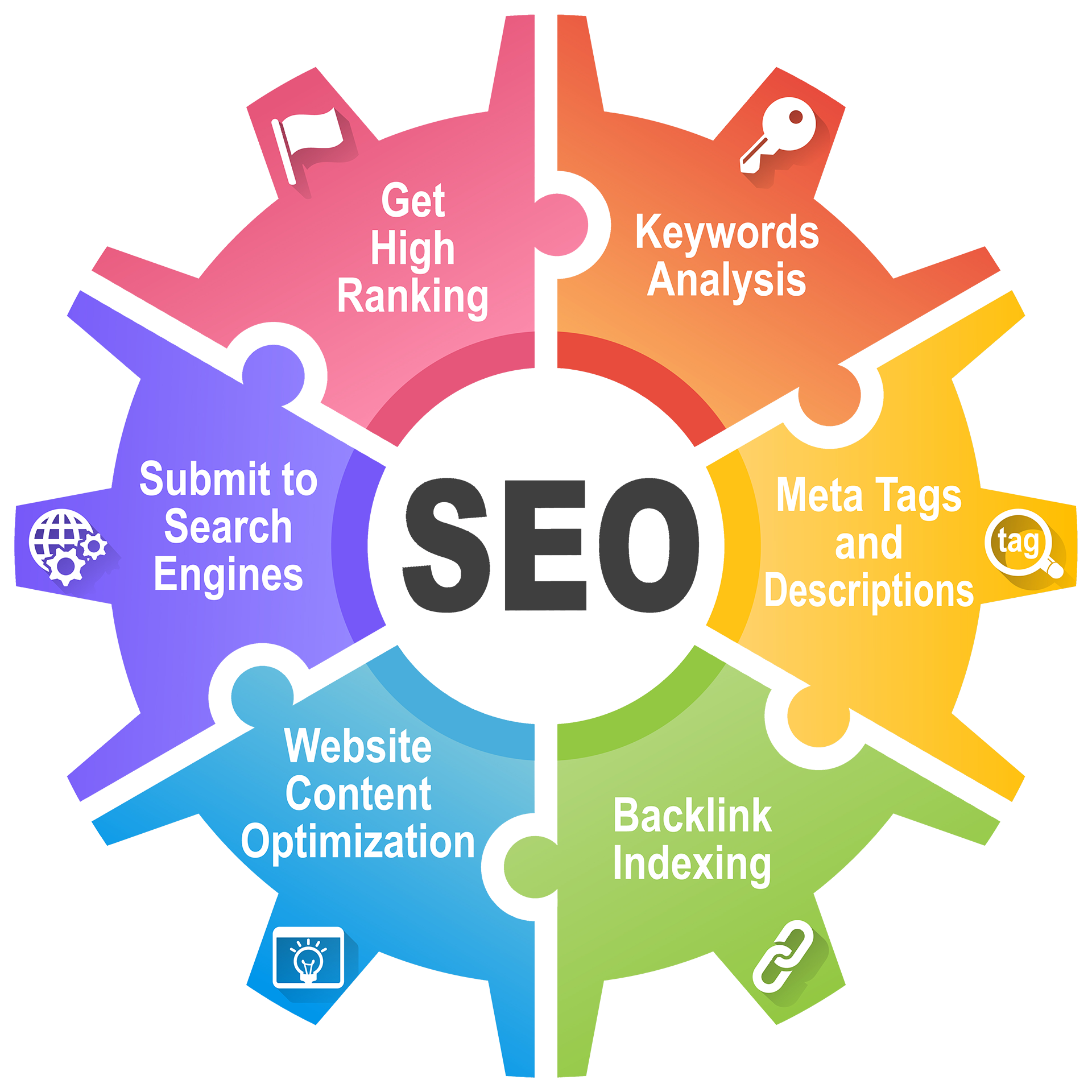Comprehensive Guide To Optimizing Your Website For Enhanced Search Engine Performance
In today's digital landscape, optimizing your website for search engines is no longer a luxury but a necessity. With an optimized website, businesses can increase their visibility, drive traffic, and ultimately grow their revenue.
Editor's Note: Comprehensive Guide To Optimizing Your Website For Enhanced Search Engine Performance was published on today date. This topic is important to read because it provides a comprehensive guide to help you optimize your website for better search engine performance.
After extensive analysis and research, we have compiled this Comprehensive Guide To Optimizing Your Website For Enhanced Search Engine Performance to assist our readers in making informed decisions about their website optimization strategies.
Key Differences or Key Takeaways:
| Comprehensive Guide To Optimizing Your Website For Enhanced Search Engine Performance | |
|---|---|
| Purpose: | Provides a thorough understanding of website optimization techniques for improved search engine performance. |
| Target Audience: | Website owners, SEO professionals, and digital marketers. |
| Key Features: | Covers technical SEO, content optimization, link building, and performance optimization. |
Transition to Main Article Topics:
This guide will delve into the following key topics to help you optimize your website for enhanced search engine performance:
- Technical SEO: Ensuring your website's technical foundation is optimized for search engines.
- Content Optimization: Creating high-quality, relevant content that aligns with search intent.
- Link Building: Acquiring high-quality backlinks to improve your website's authority and credibility.
- Performance Optimization: Optimizing your website's speed, responsiveness, and overall user experience.
FAQ
This FAQ section provides answers to commonly asked questions and addresses common misconceptions related to optimizing websites for search engines.

Local SEO Ranking Factors: Optimizing Your Website for Local Searches - Source donhesh.com.au
Question 1: What is the most important factor in search engine optimization (SEO)?
Answer: Content. High-quality, relevant, and keyword-rich content is crucial for improving a website's ranking in search results.
Question 2: Are there any "tricks" or "hacks" to boost SEO rankings?
Answer: No. Google's algorithms are sophisticated and can identify and penalize websites that use unethical or manipulative SEO practices.
Question 3: How often should I update my website's content?
Answer: Regularly updating content with fresh, relevant information demonstrates a website's authority and relevance to search engines.
Question 4: Is mobile optimization still important?
Answer: Yes. Google prioritizes mobile-friendly websites in search results, as the majority of users access the internet through mobile devices.
Question 5: Should I use paid advertising for SEO?
Answer: While paid advertising can complement SEO efforts, it is not a substitute for optimizing a website for organic search results.
Question 6: How do I measure the effectiveness of my SEO efforts?
Answer: Utilize analytics tools to monitor website traffic, keyword rankings, and other metrics to assess the impact of SEO optimization.
For a comprehensive guide on website optimization for search engines, refer to Comprehensive Guide To Optimizing Your Website For Enhanced Search Engine Performance.
These FAQs provide a solid understanding of SEO fundamentals. Remember to prioritize quality content, adhere to ethical practices, and track your progress to enhance website performance in search engines.
Tips
To enhance search engine performance and optimize your website's visibility, implement the following strategies:
Tip 1: Prioritize Keyword Research and Optimization
Conduct thorough keyword research to identify relevant terms that potential customers use in search queries. Incorporate these keywords naturally throughout your website's content, including titles, meta descriptions, and body text.
Tip 2: Enhance Page Speed and Mobile Responsiveness
Ensure your website loads quickly and seamlessly across various devices. Optimize images, minimize code, and leverage caching techniques to improve page speed. Implement a responsive design that adapts to different screen sizes, providing an optimal user experience.
Tip 3: Create High-Quality Content
Develop valuable and informative content that resonates with your target audience. Provide in-depth information, showcase your expertise, and answer common queries. Regularly update your content to maintain its relevance and freshness.
Tip 4: Build Backlinks from Reputable Sources
Acquire high-quality backlinks from authoritative websites within your industry. Reach out to industry blogs, collaborate with influencers, and participate in guest posting opportunities to establish credibility and improve your website's search ranking.
Tip 5: Employ Technical SEO Best Practices
Implement proper site architecture, use structured data markup, and ensure crawlability for search engines. Optimize robots.txt and XML sitemap files to guide crawlers effectively. Address broken links and technical issues promptly.
Tip 6: Leverage Social Media Marketing
Actively engage on social media platforms where your target audience is present. Share valuable content, interact with users, and promote your website to increase brand visibility and drive traffic.
Tip 7: Monitor and Analyze Your Performance
Utilize analytics tools to track your website's performance, monitor keyword rankings, and identify areas for improvement. Regularly analyze data to make data-driven decisions and optimize your website's visibility and effectiveness.
By implementing these tips, you can optimize your website for enhanced search engine performance, improve user experience, and drive more organic traffic to your site.
Comprehensive Guide To Optimizing Your Website For Enhanced Search Engine Performance
In today's digital landscape, optimizing your website for enhanced search engine performance is paramount. This comprehensive guide presents essential aspects that will empower you to elevate your website's visibility and drive organic traffic.
- Keyword Research: Identify relevant keywords that align with your target audience's search queries.
- Content Optimization: Create high-quality content that incorporates keywords naturally and provides value to users.
- Technical SEO: Ensure your website's technical infrastructure is optimized for search engines, including site speed, mobile responsiveness, and structured data.
- Link Building: Acquire high-quality backlinks from reputable websites to enhance your website's authority.
- Local SEO (if applicable): Optimize your website for local searches if your business serves a specific geographic area.
- Analytics and Monitoring: Track your website's performance through analytics tools to monitor progress and make data-driven adjustments.
These key aspects provide a holistic approach to website optimization. Keyword research forms the foundation, while content optimization ensures relevance and user engagement. Technical SEO establishes a solid foundation for search engine crawlers, while link building enhances credibility. Local SEO caters to specific geographic targets, and analytics empowers data-driven decision-making. By implementing these aspects effectively, you can significantly improve your website's search engine ranking and drive sustainable organic traffic.

《SEO高手指南:十大高效策略助网站站长实现盈利》-大海资源库 - Source vip.lzzcc.cn
Comprehensive Guide To Optimizing Your Website For Enhanced Search Engine Performance
Search engine optimization (SEO) is the process of improving the visibility of a website or a web page in search engine results pages (SERPs). By optimizing a website for search engines, businesses can increase the amount of organic traffic to their website, which can lead to increased sales and conversions.

* 白帽seo營銷定義詞典和百科全書 – Telegraph - Source telegra.ph
There are many different factors that can affect a website's ranking in SERPs, including the keywords that are used in the website's content, the structure of the website, and the backlinks that point to the website. By understanding the factors that affect SEO, businesses can make changes to their website that will help them to rank higher in SERPs and attract more organic traffic.
One of the most important factors in SEO is the use of keywords. Keywords are the words and phrases that people use to search for information on the web. When choosing keywords, it is important to think about the words and phrases that your target audience is likely to use to search for information about your products or services.
In addition to using keywords in the website's content, it is also important to optimize the website's structure for SEO. The website's structure should be easy for search engines to crawl and index. This means that the website should have a clear hierarchy and that the content should be organized in a logical way.
Finally, backlinks are another important factor in SEO. Backlinks are links from other websites to your website. When search engines see that your website has a lot of backlinks, they take this as a sign that your website is popular and credible. This can help your website to rank higher in SERPs.
By following these tips, businesses can improve the SEO of their website and attract more organic traffic. This can lead to increased sales and conversions, and ultimately, to a more successful business.
Conclusion
To conclude, the "Comprehensive Guide To Optimizing Your Website For Enhanced Search Engine Performance" provides a comprehensive overview of the critical factors that impact a website's visibility and ranking in search engine results. Understanding and implementing these principles can significantly improve a business's online presence, driving organic traffic, boosting conversions, and ultimately achieving greater success in the digital marketplace.
The ever-evolving nature of search engine algorithms underscores the importance of staying updated on the latest SEO best practices. By continuously monitoring industry trends and adapting their strategies accordingly, businesses can stay ahead of the curve and maintain a competitive edge in the online landscape.